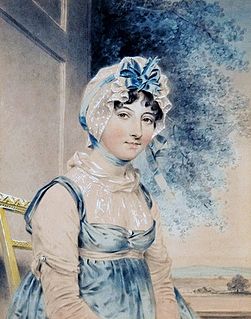A Quote by Edward Gibbon
Yet the arts of Severus cannot be justified by the most ample privileges of state reason. He promised only to betray; he flattered only to ruin; and however he might occasionally bind himself by oaths and treaties, his conscience, obsequious to his interest, always released him from the inconvenient obligation.
Related Quotes
An artist is he who has his center within himself. He who lacks this must choose a particular leader and mediator outside of himself, not forever, however, but only at first. For man cannot exist without a living center, and if he does not have it within himself, he may seek it only in a human being. Only a human being and his center can stimulate and awaken that of another.
Reason cannot desire for man any condition other than that in which not only every individual enjoys the most absolute, unbounded freedom to develop himself out of himself, in true individuality, but in which physical nature, as well, need receive no other shaping by human hands than that which is given to her voluntarily by each individual, according to the measure of his wants and his inclinations, restricted only by the limits of his energy and his rights.
Some souls think that the Holy Spirit is very far away, far, far, up above. Actually he is, we might say, the divine Person who is most closely present to the creature. He accompanies him everywhere. He penetrates him with himself. He calls him, he protects him. He makes of him his living temple. He defends him. He helps him. He guards him from all his enemies. He is closer to him than his own soul. All the good a soul accomplishes, it carries out under his inspiration, in his light, by his grace and his help.
In the end, therefore, money will be the one thing people will desire, which is moreover only representative, an abstraction. Nowadays a young man hardly envies anyone his gifts, his art, the love of a beautiful girl, or his fame; he only envies him his money. Give me money, he will say, and I am saved...He would die with nothing to reproach himself with, and under the impression that if only he had had the money he might really have lived and might even have achieved something great.
A good soldier is a blind, heartless, soulless, murderous machine. He is not a man. His is not a brute, for brutes kill only in self defense. All that is human in him, all that is divine in him, all that constitutes the man has been sworn away when he took the enlistment roll. His mind, his conscience, aye, his very soul, are in the keeping of his officer. No man can fall lower than a soldier-it is a depth beneath which we cannot go.
There is a myth, sometimes widespread, that a person need only do inner work...that a man is entirely responsible for his own problems; and that to cure himself, he need only change himself....The fact is, a person is so formed by his surroundings, that his state of harmony depends entirely on his harmony with his surroundings.
No man could bring himself to reveal his true character, and, above all, his true limitations as a citizen and a Christian, his true meannesses, his true imbecilities, to his friends, or even to his wife. Honest autobiography is therefore a contradiction in terms: the moment a man considers himself, even in petto, he tries to gild and fresco himself. Thus a man's wife, however realistic her view of him, always flatters him in the end, for the worst she sees in him is appreciably better, by the time she sees it, than what is actually there.
The rational herdsman concludes that the only sensible course for him to pursue is to add another animal to his herd. And another; and another . . . But this is the conclusion reached by each and every rational herdsman sharing a commons. Therein is the tragedy. Each man is locked into a system that compels him to increase his herd without limit — in a world that is limited. Ruin is the destination toward which all men rush, each pursuing his own best interest in a society that believes in the freedom of the commons. Freedom in a commons brings ruin to all.
The feeling of patriotism - It is an immoral feeling because, instead of confessing himself a son of God . . . or even a free man guided by his own reason, each man under the influence of patriotism confesses himself the son of his fatherland and the slave of his government, and commits actions contrary to his reason and conscience.







































